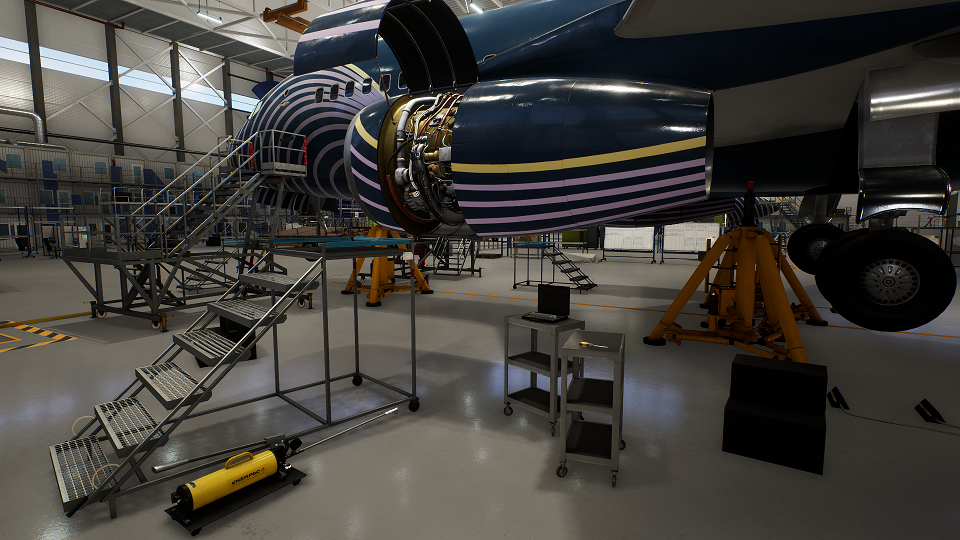
The Boeing 737NG engine in FL Technics’ VR module. (FL Technics)
Avia Solutions subsidiary FL Technics is using virtual reality to train aviation mechanics in less than a fourth of the time it take with conventional methods.
“Globally the industry struggles with the 3-month-long enrollment process needed for aviation mechanics,” said FL Technics CEO Zilvinas Lapinskas in a statement. “So, that’s why we are pushing to shorten that process as much as we can, and we aim to try to get it down to 3 weeks.”
The company’s first VR module covers the opening of the reverse thrust engine of a Boeing 737NG. So far, the technology has cut nearly a month from the training process, according to Ramunas Paskevicius, head of IT and innovations.
“We now focus now on basic training for mechanics as an addition to theoretical training material,” he told AVI. “The plan is to deliver, first, basic training simulations by the end of the year and then we will evaluate how effective it is [and] decide on what training should be implemented next.”
In the VR module that the company has already created, the trainee completes a series of tasks necessary to open the engine: selecting tools, removing covers, opening the reverse and inserting the safety lock, for example. The trainee can turn guidance on or off and the program will record any damage done to the aircraft as a result of the trainee’s performance in the exercise and what that damage would cost.
Ultimately, FL Technics hopes to bring its VR modules and training materials to market. However, there is not yet any timeline yet for that, according to Paskevicius, who created the training program. Bringing the product to market will be evaluated after FL Technics finishes creating and evaluating the program and gets the training timeline down to its three-week goal without any loss of quality.